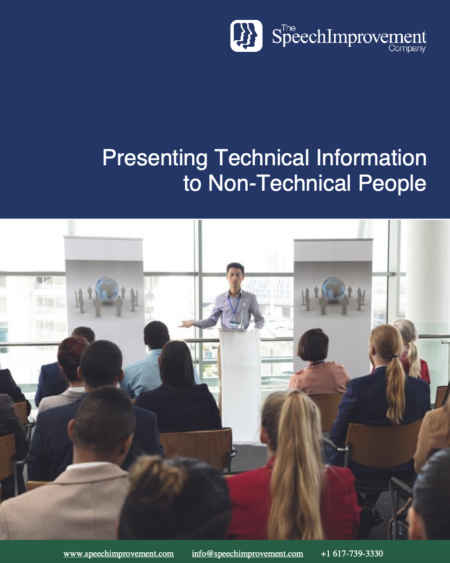It’s that time of the year when organizations are gearing up for client conferences. Below are three suggestions that I find myself reminding all of my clients to include in their presentations.
- Give your listeners a reason to listen. We call this a benefit statement, or I often refer to it as W.I.I.F.M. (What’s In It For Me). It answers the question, “What is your presentation going to give listeners?” Think about your overall message and not what’s on your agenda slide.
- Include one or two sentences about yourself in your introduction. This information is not your title or your department you work in. I suggest that you include something that is unique about your experience as it relates to your topic. A great example of this is a recent conference presenter who only used her title as she introduced herself. When I asked her about her experience, I found out she was a top influencer who had been working in retail for over 20 yrs. Two pieces of information that create instant creditability for this presenter.
- End with an action statement. When you are wrapping up Instead of saying, “Thank you,” I suggest you use this as an opportunity to direct your listeners to do something with the content you just delivered. A great example is, “Let’s continue this conversation. I am available after we finish up. Come find me.”





